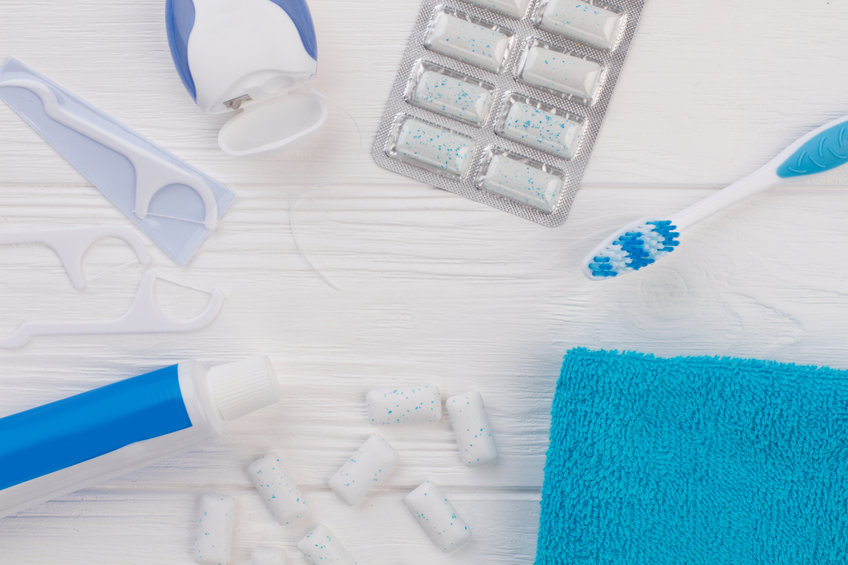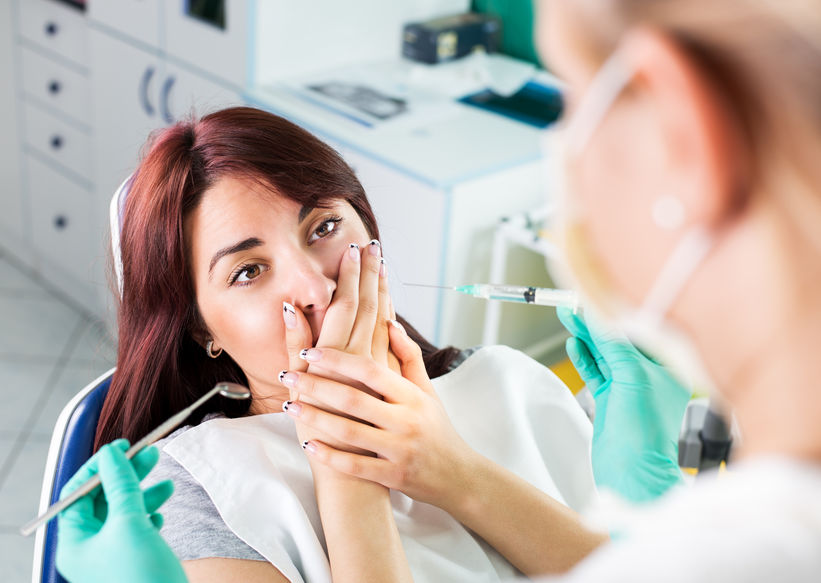The thin shells are created from porcelain or resin and can be customized for a desirable color and shape.
Over time, it is natural and common for gums to recede.
No, bridges are non-removable, they are permanently cemented in place.
Our teeth whitening procedures are used to brighten the appearance of a patient’s smile by as many as 5 to 10 shades in one session.
Even if your jawbone has receded, bone implants might be an option that allows you to be a candidate for implants.
Our technology at Tedford Family Dentistry anchors the denture plate so securely that it won’t wander.
Basic preventative care and regular checkups will help you fix dental pains before surgery becomes necessary.
 “Cheers to a new year and another chance for us to get it right.” –Oprah Winfrey
“Cheers to a new year and another chance for us to get it right.” –Oprah Winfrey
The last remaining months of the year are filled with family, friends, and food– yes, with the holidays comes a full spread of delicious eats and treats that you’ve likely been anticipating all year long. Though you’re surely excited to indulge in all the foods, drinks, and desserts you love while you celebrate the holidays, it’s important to prioritize your oral health during this time as well. So here are five dental tips to bear in mind this holiday season to keep your teeth and gums healthy and happy.
Even though the holidays can be a major disruption to our everyday schedules, it’s important to stick to your regular routine as it pertains to oral health. Make sure you continue to brush at least twice a day with fluoride toothpaste, and that you floss at least once per day too!
Of course, the end of the year is easily the busiest of times, but that isn’t reason enough to blow off your regular dental visits. Keep your teeth healthy and cavity free, and your gums in ship shape by keeping those always-important dental check ups and cleanings.
Drinking water has a slew of health benefits, but is especially important during the holiday season. This busy time of year often has us running ragged, and staying hydrated can help boost our immune systems, keep our skin looking its best, and help keep your teeth and gums healthy. Water washes away food debris and bacteria, and often has fluoride in it to help strengthen teeth while you drink it.

It’s easy during this time of year at holiday parties and family gatherings to eat a little here and there, and graze on the snacks and treats abounding. That said, grazing is not great for your teeth and gums. When you eat, your body produces an acid that aids in the breakdown of food, and that acid is not ideal for tooth health. This is why it’s a good idea for meal times to have distinct beginnings and ends to allow for your teeth to get a break from this process. It’s also a good idea to try to brush or rinse after eating whenever possible.
Another pro tip, especially during the holiday season, is to keep some dental floss in your bag or pocket. Not only is it a great idea to pop into the bathroom for a quick floss after meals, but you’ll also be totally prepared if you have an unfortunate spinach dip situation, or something else stuck in your teeth when you’re trying to socialize at the company Christmas party.
These are small and simple ways you can prioritize your oral health during this usually-hectic time of year. Of course, if you have any issues or concerns, contact our team at Tedford Family Dentistry. We’re always here to help! Cheers to the most wonderful time of the year, and to taking the best possible care of our holiday smiles no matter what the calendar brings!

We all know that dental health habits are important at any age, but as we grow older, we may face more oral health concerns than we did in our earlier years. This is why it’s important to establish and maintain great dental hygiene routines and to foster a relationship with a great dentist to help meet dental challenges as they come.
What happens to our teeth as we get older? The fact of the matter is, as our bodies age, we sometimes find ourselves dealing with ailments that were not a problem in our youth. This can apply to our teeth and gums as well. Most of these dental problems that can arise in seniors are easy to identify, resolve, and even prevent when you know what signs and symptoms to be on the lookout for. Here are a few things to be aware of when it comes to senior oral health.
Attrition simply means wear and tear, something your teeth see a lot of over the years as they help you chew your food, speak, and function normally. Years of use, eating, grinding, and general aging can take their toll on your teeth. Also as your healthy tooth enamel wears down over time, they leave your teeth more susceptible to decay and cavities.
Aging in and of itself does not necessarily make the symptoms of dry mouth more likely; however, certain factors that come along with it can, such as chronic conditions, medications you may take, and so on. If you are experiencing dry mouth, it can be indicative of issues you’ll need to address with your dentist.
Gum disease happens to be one of the leading causes of tooth loss in adults. Also referred to as periodontal disease, this dental issue is caused by plaque forming on the teeth, and being left untreated. Gum disease symptoms include red, puffy, or bleeding gums, consistently bad breath, pain, and tooth sensitivity, all of which can be prevented by diligent oral care. Gum disease is also reversible when detected and treated early.
Some also find that tooth sensitivity is more of an issue as they age. Gums naturally recede over time, and that can leave areas of tooth exposed that are not well-protected by enamel. Sometimes sensitivity can be an indication of a bigger problem such as a cavity or a cracked or fractured tooth.
Often as a result of gum disease, the roots of your teeth can become exposed as gums recede over time. This can cause tooth decay to develop at an increased rate, which can then lead to a whole host of other dental problems that will require the attention of your dentist.

Of course, maintaining oral health for seniors looks a lot like it does for folks at any age, and keeping your teeth and gums in prime condition just takes a little bit of effort. Combat dental problems that can become more likely with age through the following practices:
Our team at Tedford Family Dentistry is here to support families in their oral health regardless of age. We offer preventative dental care for children, adults, and senior adults, and we want to help you achieve your greatest possible oral health at every age! Contact our team to schedule an exam or cleaning, or to address any dental issues you may be experiencing.

When it comes to oral health, it’s about so much more than just teeth. Your gums play a critical role in maintaining a healthy mouth, and even in ensuring your teeth remain healthy and strong. Even if your teeth are cavity free and aesthetically beautiful, that doesn’t mean you are immune to gum disease. Gum disease can oftentimes be completely painless, and therefore difficult to detect.
Gum disease affects 47.2% of adults ages 30 and up, according to the CDC. It begins with plaque that builds up under and along the gum line, and can cause infections that hurt the gum and bone, leading to tooth decay and other issues. The presence of plaque can also cause gingivitis, the earliest stage of gum disease. Gingivitis can cause your gums to become red, tender, swollen, and inflamed, and can cause bleeding as well. As unpleasant as that sounds, the upside is that this damage is completely reversible.
Periodontitis, however, is a more advanced stage of gum disease, and can impact the bones that hold your teeth in place within the mouth. If left untreated, this can be the ruin of gums, bones, and tissues inside the mouth. The final and most serious stage of gum disease is advanced periodontitis, and in this phase, the fibers and bone supporting your teeth are destroyed. This can result in issues with your bite as well as tooth loss.
Per the American Dental Association (the ADA), signs that you may have gum disease include:
Consistently bad breath A consistently bad taste in your mouth Separating or loose permanent teeth Gums that easily bleed Gums that are red, swollen, or tender Gums that have pulled away from your teeth
A positive thing to note here is that gum disease is completely preventable, and here are a few tips for healthy gums that will help you evade these problems when it comes you your own oral health.
1– FLOSS ‘EM
Just do it, ok? Floss your teeth at least once per day to help remove plaque and food particles that are beyond the reach of your toothbrush. It doesn’t really matter that much when you do it, just do it!
2– BRUSH TWICE A DAY
Brush at least twice a day, or even better yet, after every meal. Brushing your teeth removes food bits and plaque that can build up on your teeth and gums. You’ll also want to brush your tongue, which can be a hotspot for all sorts of problem-causing bacteria (and stinky breath). Your toothbrush should ideally have soft bristles and fit comfortably in your mouth.
3– FLUORIDE OR DIE
Let your fluoride toothpaste be your oral health ride or die. Your toothpaste aisle might have you a little overwhelmed with options, but no matter what you do, be sure to choose a toothpaste that contains fluoride and has the ADA seal of acceptance. Type, flavor, brand is all completely your call.
4– SWISH N’ SPIT
The next tip for healthy gums is to use an over the counter therapeutic mouthwash. This can help reduce plaque, prevent gingivitis, and reduce the speed at which tartar develops in the mouth. More than that, the actual act of swishing and rinsing helps to loosen and remove food particles and debris that can take up residence in the mouth. Just remember mouthwash is not a suitable alternative to regular brushing and flossing, but an additional step that can do a lot of good!
5– DON’T SMOKE
Smoking is one of the worst things you can do for your gums. Smoking is strongly associated with the development of gum disease, and even makes it harder to fight off gum infections by weakening your immune system, according to the CDC. Smoking also makes it harder for your gums to heal after facing damage.
6– MAKE YOUR DENTIST YOUR BFF
The final tip for healthy gums is to prioritize dental cleanings and exams. Your dentist can help diagnose any issues that arise early, and help ensure you get the treatments necessary for maintaining your overall oral health. Professional dental cleanings are also necessary for removing tartar build up on the teeth and along the gumline, which can cause problems if left untreated.
If it’s time for a dental check up, contact our team at Tedford Family Dentistry today, and we’ll get you taken care of. In the meantime, make your oral health a priority with these tips for healthy gums. We assure you, you won’t regret the extra effort!

Dental accidents can occur anytime, anywhere, and parents need to be prepared for these unforeseen situations so they can react quickly and appropriately. Knowing what to do when faced with a children’s dental emergency can mean the difference between your child losing a tooth forever or saving that permanent tooth by taking the right actions immediately. No matter what the dental emergency is, it’s imperative that you take your child to the dentist or the closest emergency room as soon as possible.
If your child cracks a tooth, rinse the mouth out with warm water to cleanse the area, and put a cold compress on the face to help reduce pain and swelling. See the dentist as soon as possible for the next steps.
First of all, make sure your child doesn’t have a more serious injury in addition to the knocked-out tooth—it’s important to assess the entire situation. For a knocked-out permanent tooth, it’s important to keep it moist at all times. Ideally, place the tooth in a container of milk, or use a tooth preservation product marked by the ADA’s Seal of Acceptance. Then, get to the dentist’s office as soon as possible. A primary tooth, or baby tooth, does not need to be placed in milk, but should still be brought to the dentist if possible.
If your child accidentally bites his tongue or lip, clean the area gently with water, then apply a cold compress. Contact your dentist or primary care doctor to determine how severe the bite is. If the bite is severe, go to the emergency room as soon as possible.
For toothaches in children, rinse the mouth with warm water to clean the area. Gently floss the area to remove any debris that could be causing the pain. If the pain persists, visit your pediatric dentist ASAP.
If your child has something caught between his or her teeth, first try to remove it gently with dental floss. Don’t ever use metal, plastic, or any other sharp tool to attempt to remove a stuck object between teeth, as this can cause more damage. If you are unable to remove the object, contact your dentist immediately.
First, rinse the mouth with warm water, then use a cold compress on the area to reduce swelling. Try your best to find the broken-off piece of tooth, and then contact your dentist immediately.
If you believe your child’s jaw may be broken or fractured, it’s important to exercise caution. VERY gently apply a cold compress to help control swelling and pain, and get to your dentist or ER immediately. Try your best to stabilize the jaw to keep it from moving.
Our team at Tedford Family Dentistry is equipped to handle your children’s dental emergencies. Contact us if you need assistance, and if it’s after hours, be sure to contact our emergency line or go to the nearest emergency room for immediate care.

Cavities aren’t ideal, but they are common. According to the CDC, about 20% of children ages five to 11 have at least one, untreated decaying tooth or cavity. Are you wondering what to do if your kid has a cavity? Keep calm, and call your Chattanooga pediatric dentist. When it comes to cavities, the worst thing you can do is nothing. You don’t want to leave a cavity untreated or unfilled, because it will progressively get worse, and cause pain and more problems if you don’t address the issue early on.
Several factors can make children susceptible to developing cavities including poor dental hygiene, improper diet, lack of dental care, and even genetics. Though a lack of regular brushing and flossing is often the culprit in the presence of dental caries, it’s not always the problem. Some people are just more genetically predisposed to tooth decay than others. That said, it’s important to teach your children to brush regularly and do what they can to prevent tooth decay.
There are several warning signs that your child may be developing a cavity, and when you notice them, it’s best to make an appointment with your pediatric dentist straight away. The earliest sign of developing tooth decay is the formation of chalky, white spots on the tooth due to calcium loss and the presence of plaque. As the cavity begins to form, the area will become light brown, and as the spots deepen, they will darken in color.
Symptoms of a cavity often include:
If your child does develop a dental cavity, your Chattanooga pediatric dentist will present you with the treatment options that make the most sense for your child. Treatment will depend on the size and location of the cavity, as well as whether it’s in a baby tooth or a permanent one.
Dental Filling Types:
No one wants their child to have to deal with the discomfort or the aftermath of having dental cavities, but they are very common and very treatable particularly when caught early. Still, there are steps you can take to help reduce the risk of cavities for your children including:

Dental visits can be stress inducing, for patients of all ages, but what do you do when your child is outright afraid of going? There are some things you can do to help ease them into these situations with confidence. Here are 5 tips to get your kids comfortable with dental appointments Chattanooga, and we hope you’ll give them a shot.
Start em young. One great way to ensure your child is totally comfortable with dental appointments is to follow the recommendations of the ADA, and start taking your child to the dentist around the age of 6 months. As soon as your baby starts getting teeth, it’s time to start taking care of them. Early exposure to dental appointments can help create a comfort level with that type of care with your child. Treat it like the routing occurrence it is, and your child will likely follow suit.
Kids pick up on energy. Don’t forget this. If you’re stressed, they feel it. If you’re anxious, they feel it. Lead by example, and take great care of your own teeth at home. When you have dental appointments, make sure your child sees you going into them with confidence. If you have had bad experiences with dentists in the past, keep that under your hat. Your attitude about the whole thing will influence your child more than you might realize.
Before your child’s dental appointment, have a trial run at home. Do a little role playing, and make it fun. Your little one might gain some comfort from approaching things this way, and it also provides an opportunity for your child to ask any questions that may come up about the dental appointment and what to expect.
Don’t overwhelm your child with too much information or too many details, but talking about the upcoming dental appointment can really help ease any worries. Talk about how important it is to take great care of your teeth and gums, and explain that the dentist and his staff are going to brush their teeth just like you do at home to make sure they are clean and healthy. Avoid words like scary, pain, and shot, because those will likely just frighten your child. Using neutral language will soothe your child, and create a feeling of comfort and security.
Another important factor in instilling confidence for your child regarding dental appointments Chattanooga, is to find the right pediatric dentist. At Tedford Family Dentistry, we work to create an environment where children can feel comfortable. We understand how important it is for kids to feel confident about coming into the office for cleanings and other procedures, and we strive to create a sense of security and comfort with every office interaction.
Some dentists and their staff members have specialized training when it comes to providing pediatric dental care. The key is working with a team that invests time in building rapport and trust with your child, in an environment designed for treating kids. Our team at Tedford understands that this goes a long way.
If you’re looking for a pediatric dentist in Chattanooga, contact our team today. We’d love to take care of your little ones and help steer them toward lifelong oral health.

Does the thought of stepping into a dental office cause you immediate waves of anxiety? If so you’re not alone by any stretch. Many people deal with a very real fear of the dentist that can stem from all sorts of things. Some people deal with fear of injections or pain in general, others may feel embarrassment associated with the state of their teeth, and others still have suffered through negative dental experiences in the past that cause dental anxiety. Some people struggle with anxiety so severe that it keeps them from seeing a dentist regularly which only exacerbates the issues.
So how do you overcome this dental anxiety or fear of the dentist? There are lots of things you can do, but we think the number one line of defense should be to find a Chattanooga dentist who is just right for you. When you take the time to find a dentist who is able to make you feel comfortable when you’re in his or her care, you’ll be surprised at how much of your dental anxiety or fear will melt away.
Lots of factors can come into play when it comes to your comfort level at the dentist’s office. The atmosphere, the support staff, and the overall feel of the practice can go a long way in helping to ensure your comfort. It also helps to find a dentist who you trust who does great work, has experienced assistants, and who takes the time to discuss things with you to ease your worries about any necessary treatments or procedures.
Another way to combat dental anxiety is to practice relaxation techniques to help actively calm your mind and body. Deep breathing is a great place to start, as it is instrumental in relaxing tense muscles. Focusing your mind on your breath is also a great way to meditate and center yourself. Counting your breaths can serve as a great source of distraction while you’re undergoing dental procedures that have you stressed, plus this mindful breathing practice also helps to lower heart rate. You can also try systematically relaxing all the muscles in your body from head to toe, starting with the face and neck, and then the shoulders and so on.
Some dentists will use nitrous oxide, or laughing gas, to help relax patients who suffer from dental anxiety. Many patients find that the use of laughing gas is enough to quell their fears surrounding dental experiences. Talk with your Chattanooga dentist about this option if you are feeling extra anxious about your dental visit.
Some dental procedures that are more involved may require anesthesia, in which case your provider will discuss with you the options available. One option that’s sometimes available is conscious sedation. This type of anesthesia involves the use of drugs that depress the central nervous system allowing for the dental procedure to be carried out while the patient is still conscious and able to communicate with the dental staff during the visit. Different levels of sedation through anesthesia are often available during more invasive dental procedures.
No matter how you address your fear of the dentist or dental anxiety, be sure it doesn’t get so overwhelming that it keeps you from your regularly scheduled visits. Skipping out on cleanings and dental exams can lead to dental problems that are unpleasant and costly to address, and those experiences will only contribute to any negative feelings you may have about seeking dental work. If you are looking for an experienced and caring dental staff in the Chattanooga area, contact our team at Tedford Family Dentistry. We work hard to create an environment in which our patients can feel safe and comfortable while receiving the quality dental care they deserve.